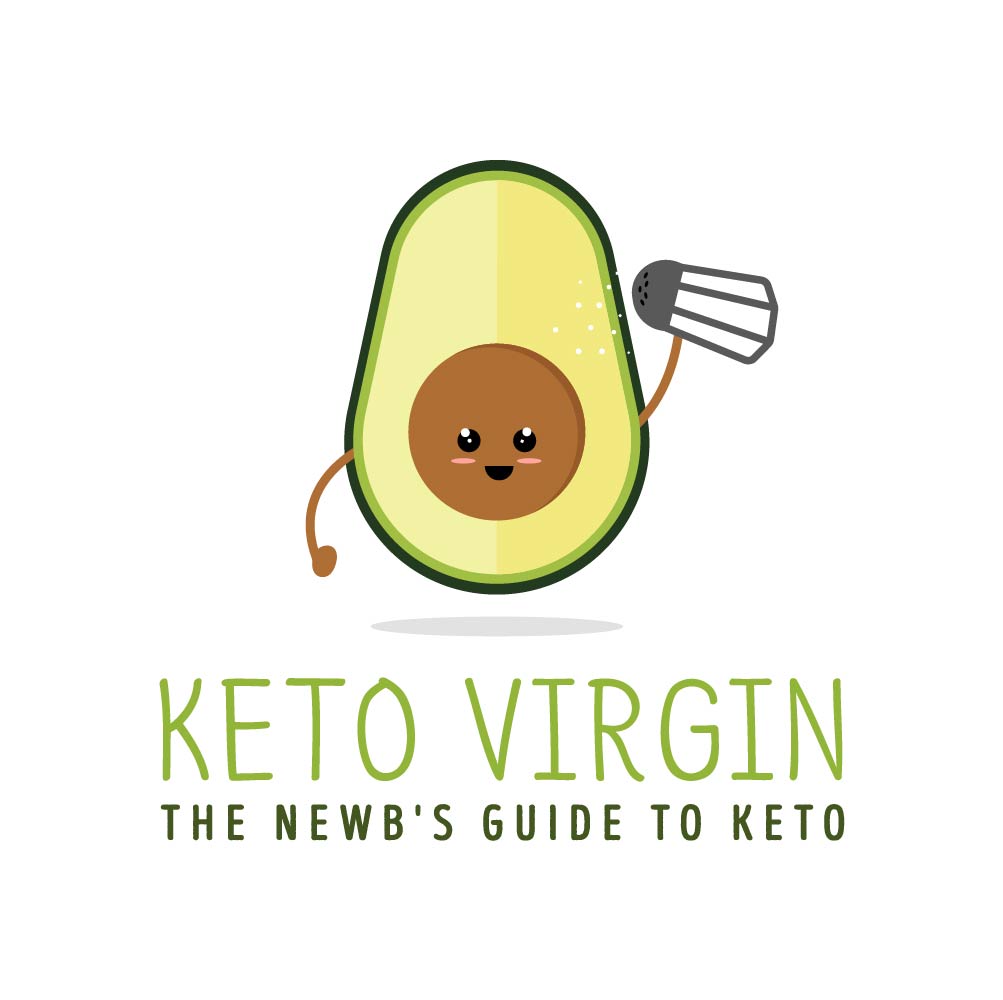Please: always consult with your doctor before making a dramatic lifestyle change like switching over to a Ketogenic diet. All advice and suggestions in this article are based on my own personal experience with the Ketogenic diet
As a chronic sufferer of TMJ disorder for over 15 years, I decided to write this article to share my experience on treating my TMJD and helping to maintain my quality-of-life by utilizing a strict ketogenic diet.
In somewhat of a happy accident, I discovered that by switching over to a strict ketogenic diet in hopes that it would boost my energy, my TMJ symptoms were greatly reduced (some I would estimate close to 80%).
I've been so inspired by the results of my dietary change that I decided no only to just share my experiences, but to start an entire company around making it easier for others to adopt this lifestyle, something I never would have expected just a couple of months ago.
What is TMJ disorder?
If you're reading this article, there is a good chance you've known someone with a TMJ disorder, or perhaps you yourself have a TMJ disorder. TMJD is short for Temporomandibular joint disorder. All of us have two of these joints, one on each side of your face, just in front of your ear. TMJD is somewhat of a catch-all phrase meaning there is some sort of dysfunction within the mechanics of the joint.
There a vast array of symptoms and side-effects associated with a TMJ disorder, including localized pain, chronic pain, tinnitus, digestive problems, difficulty communicating, fatigue, jaw clicking and popping. TMJ disorders are notoriously challenging to diagnose and treat due to the masking symptoms and lack of expertise by the majority of dental professionals and doctors.
If you think you have a TMJ disorder (or have already been diagnosed), read on to find out how a ketogenic diet can help you take control of your symptoms.
How the anti-inflammatory benefits of the Ketogenic diet help with TMJ
Why is it that the Ketogenic diet is potentially the perfect match for those dealing with TMJ disorders? The answer lies in the fact that so much of the discomfort and problems that someone suffering from TMJD faces are related to inflammation. TMJ patients are generally battling some form of chronic inflammation, often throughout the entire body.
TMJ specialists have long prescribed anti-inflammatory medications and even diets to help alleviate symptoms. However, often times the diets suggested are focused more on the chewing component of the foods (soft-food diets), and not so much on the nutritional or anti-inflammatory properties of the food.
The anti-inflammatory benefits of the Ketogenic diet are well documented, despite not being completely understood yet. It is generally accepted that the Ketogenic diet causes a reduction in inflammatory markers in the body. Cutting-edge research has started to determine that the ketone beta-hydroxybutyrate can block NLRP3 inflammasome, an immune receptor linked to inflammation.
A standard carb-heavy diet can potentially cause NLRP3 inflammasome receptors to become overly active which in turn results in excess and unnecessary inflammation throughout the body.
In short, less carbs and more ketones = less inflammation. Less inflammation = more relief from TMJ related symptoms as the joints are able to better mobilize and the surrounding tissues and muscles able to better perform their important stabilization functions.
What to eat
To state it simply, you should eat whatever you can that fits the Ketogenic profile. Many TMJ patients have a hard time with chewy or hard foods, so you may need to take it light in the beginning.
- Stick to nuts that aren't so hard on the jaw, Pecans are a great choice. If you have a food processor, it's extremely simple to make your own nut butters with a pound of nuts and a couple table spoons worth of coconut oil / sea salt. Just be careful not to overdo on the stuff, it's crazy delicious.
- If you have difficulty chewing certain meats, stick to more tender cuts or ground beef/lamb/turkey. Salmon is critical for the omega-3 fatty acids DHA and EPA.
- Eggs and Spinach are both staple parts of the diet and loaded with macronutrients that will help support the anti-inflammatory properties of the diet.
- Avocados are fantastic and you should really try and eat at least one full avocado a day, the potassium boost really helps to reduce inflammation.
It should start to become clear that there really isn't any shortage of Ketogenic foods that you can consume. Stick to the Ketogenic guidelines and eat the foods that you are able to without causing yourself too much tension on your jaw at first, you will begin to notice as the inflammation decreases over time, your ability to eat chewier / harder foods will become easier.
What to supplement
Supplementation, while not exactly critical, can definitely help ease the transition early on. There are a few key supplements you are going to want to stock up on for daily consumption if you decide to go this route.
Electrolytes
Keeping your electrolytes balanced is going to make a huge impact, particularly in the beginning of your switch to a Ketogenic diet. In short, electrolytes are the fuel source that help to regulate almost all of your bodily functions. A shortage of electrolytes in your body can cause a whole host of different symptoms including muscle cramping, dizziness and drowsiness, heart palpitations, etc. For TMJ patients, the muscles are normally in a state of contraction which generally leads to an exhaustion of one or more critical electrolytes.
My recommended (and favorite by far) is Ultima Electrolyte supplements. They are 100% keto-safe and taste fantastic. The electrolyte blend is spot-on and gets you a great ratio of all the most essential electrolytes.
Buy Ketogenic electrolyes from our shop.
Magnesium + Potassium
Although both of these fall under the electrolyte category, it is important to get a bit extra, as each of these electrolytes is critical in preventing muscle spasms and other common TMJ symptoms.
I recommend Pure Encapsulations Magesium.
Krill oil
Krill oil is a fantastic source of Omega-3 fats which help fight inflammation and improve circulation naturally. It's a great alternative to fish oil as it is far more sustainable, easier for your body to absorb and nearly 40x as potent.
My recommended choice for Krill Oil is Viva naturals Krill oil
Daily Multivitamin
Filling in the gaps with your essential nutrients is fairly simple to do with a standard daily multivitamin.
I highly recommend Pure Encapsulations O.N.E. Multivitamin.
Vitamin D3
Vitamin D is critical for supplementation. Benefits include: overall bone health, reducing muscle cramps, mood, skin, calcium absorbtion and regulation. It's even more important if you find yourself stuck inside most of the time and aren't receving enough natural sunlight.
I recommend the NatureWise brand D3 which comes highly rated on Amazon.
With this regimen on a daily basis, you should begin to notice dramatic a fairly profound reduction in your overall soreness, stiffness and general joint function.
Symptoms table
I wanted to track my symptoms before and after in relation to switching to a Ketogenic diet.
| Symptom | Before | Notable Changes | Estimated Improvement |
|---|---|---|---|
| Clicking | Left side would pop and click nearly every time I chewed | Very minimal clicking / popping | 90% |
| Jaw pain | Stiffness and soreness throughout day | Minimal or absent stiffness / soreness | 80% |
| Ear congestion / tinnitus | Constant (and loud) tinnitus in left ear, constant "stuffiness" | Minimal tinnitus, stuffiness | 60% |
| Vision | Excessive floaters, image trails | Diminished floaters, minimal / no image trails | 70% |
| Anxiety | Persistent, strong feeling of anxiety / uneasiness | Calm, level headed | 85% |
| Fatigue | Near constant drowsiness / brain fog | Stable energy levels from morning to evening time. Much greater levels of alertness | 80% |
| Sleep | Tossing and turning throughout entire night. Sleep paralysis, sleep disordered breathing. No feeling of restful sleep | Easy to fall asleep. Minimal movement and disturbance during sleep. Wake up feeling rested. | 75% |
Summary
In summary, I've been astounded by the level of relief the Ketogenic diet has afforded me. No amount of medication or treatment has come close to providing me the quality of the life that making this change in my diet has. There don't appear to be any studies at the moment directly testing the effects of the Keto diet on TMJ patients. I truly believe there is a massive potential for relief amongst TMJ sufferers.


